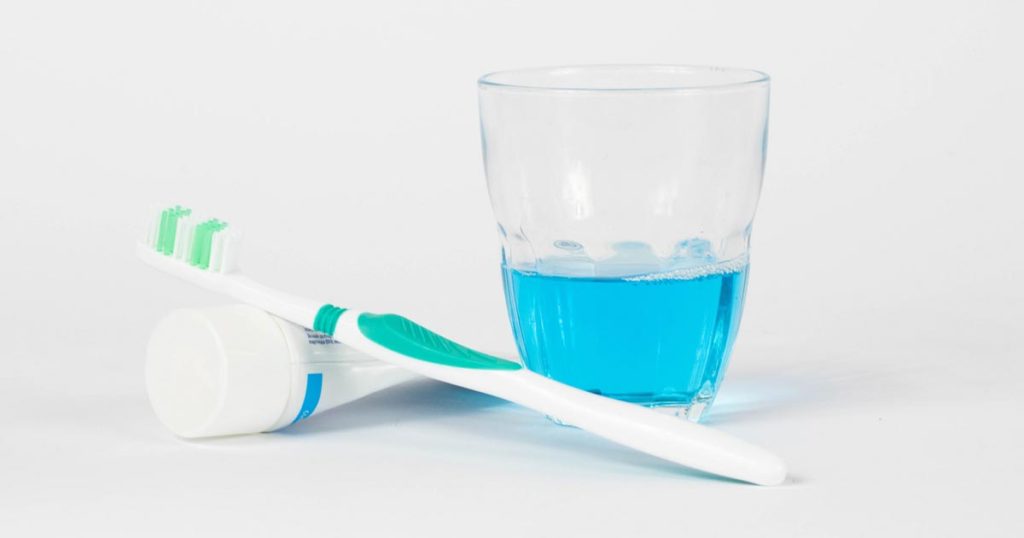Most people would probably claim to know a thing or two about mouthwash. As an everyday staple in most of our lives, it’s hardly an alien concept.
Nevertheless, research would seem to suggest that many people don’t know mouthwash quite as well as they think they do. They may use a dentist-recommended mouthwashevery day, but they’ve also fallen victim to one or more misleading and misguided myths.
With so much conflicting information doing the rounds online, it’s often difficult to know what to believe and what to ignore. So to help clarify a few important points, here’s a brief overview of some of the most common mouthwash myths and some surprising realities of rinsing:
Myth 1: All mouthwash is the same
Right off the bat, all mouthwash is most certainly not the same. For one thing, the quality of mouthwash products differs enormously from one manufacturer to the next. Some are packed with powerful active ingredients, while others are little more than flavoured and coloured water. Some are designed specifically for those with sensitive teeth, while others focus more heavily on stain prevention and reduction. Just as would be the case with any other everyday health and hygiene product, it’s important to select the appropriate mouthwash for your preferences and requirements. Simply reaching for the first mouthwash that comes to hand isn’t the way to go.
Myth 2: Mouthwash with alcohol is harmful
There’s much debate as to the dangers or otherwise of using mouthwash with a high alcohol content. On one side of the fence, advocates argue that alcoholic mouthwash delivers an unbeatable clean and gets to work at a much deeper level. On the opposite side, critics argue that alcohol in mouthwash does more harm than good. To such an extent that it’s even been suggested that alcoholic mouthwash can increase the likelihood of oral cancer. In reality, there’s no specific evidence to suggest that alcoholic mouthwash is in any way harmful. But at the same time, many dentists show preference to alcohol-free mouthwash, which they believe can be just as effective.
Myth 3: Kids can use adult mouthwash
Mouthwash for kidsexists for a reason. If it was perfectly fine for kids to use adult mouthwash, there would be no reason for kids’ mouthwash products to exist. The simple fact of the matter being that the oral health and hygiene requirements of children are very different to those of adults. For one thing, some of the ingredients in compounds in stronger adult mouthwash products could prove harmful for developing mouths. Particularly if swallowed, adult mouthwash can be dangerous for younger children. For anyone planning to introduce their kids to mouthwash at an early age, kids’ mouthwash really is the only safe option.
Myth 4: Mouthwash cures bad breath
On a temporary basis, mouthwash can be great for covering up bad breath. It can also be useful for getting rid of many of the compounds and bacteria round the mouth that can cause bad breath. Unfortunately, not all cases of bad breath can be treated with mouthwash. It’s a little like sucking on a mint – you’ll be fresh for a while, but the problem will come back to haunt you once again. When bad breath is persistent or particularly problematic, it’s important to seek advice from a qualified professional. Most common causes of bad breath can be treated, though it’s rare for mouthwash alone to get the job done.
Myth 5: Mouthwash can replace brushing
Mouthwash in general is designed to complement regular brushing. There currently isn’t a mouthwash on the planet that is designed to replacebrushing. A good-quality mouthwash has the potential to reach parts of your mouth you’ll normally miss with your toothbrush. Hence, the combination of brushing and mouthwash is perfect for giving your whole mouth a good clean. Even when mouthwash leaves your mouth feeling immaculately clean, it’s not capable of removing the same germs, bacteria and general build-up as a toothbrush.
Myth 6: Twice a day at the most
Contrary to popular belief, there’s no need to restrict the use of mouthwash to mornings and evenings. Just as long as you’re using a safe and approved mouthwash, it can be used on a regular basis throughout the day. In fact, many dentists recommend reaching for a bottle of mouthwash after eating and drinking, in order to tide things over between brushings. The one exception to the rule in this instance is the use of high-alcohol mouthwash, which when used on an overly regular basis could lead to dry-mouth, or irritation of the gums.
Myth 7: A quick swish is all you need
To a degree, you could argue that using mouthwash in any capacity is better than using no mouthwash that all. But if you really want to get the most out of your mouthwash, you can’t just swill it around your mouth for 5 seconds and spit it out. Instead, the fluid needs to remain in direct contact with your teeth and gums for the recommended 30 seconds. If you find the mouthwash you use uncomfortably strong, you can always dilute it with a little water. Whatever it takes to keep it in there for the recommended 30 seconds, it’s worth doing. And just for the record, the answer is no – leaving mouthwash to do its thing for longerthan 30 seconds doesn’t necessarily mean better results.
Myth 8: Mouthwash whitens teeth
Last but not least, the capacity for mouthwash to whiten teeth has been dangerously exaggerated. Tv ads routinely give the impression that with regular use, mouthwash alone will provide you with the gleaming white smile you’ve always dreamed of. In reality, no such mouthwash exists. Whitening mouthwash is designed to help remove rudimentary surface stains and prevent new stains from setting in. As such, it won’t do anything about the deeper stains and discolouration within the teeth. Hence, whiter teeth through mouthwash alone simply isn’t an option.
